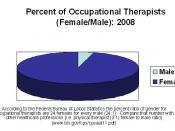Though there are so many separate ways of treatment or therapy for psychological disorders, the humanistic form is the best. The purpose of humanistic therapy is to allow a person to make full use of his or her personal capabilities leading to self-actualization. Self-actualization requires the integration of all the components of one's unique personality (Steverin, 1996, pg.400). Unlike other forms of therapy, humanistic evolves mainly upon the therapists ability to have the patient believe in his or her own choices and that they have complete control over their future. This lets the patient understand that they are powerful and will later cause them strengthen their mind and body. Thus, allowing the therapist to place more autonomy in the hands of the patient so that the patient can help him or herself out in other situations.
Humanistic therapists reject the medical model and it hierarchical assumptions (Weighten). Rather than calling the patient a "patient," they are referred to as a "client", this lets the individual become more open to the therapists.
Allowing the client to become more open and honest with the therapist on a personal level. Since patient is classified as being one who suffers, client is one who seeks advice (which would you rather be called). Allowing the client and therapist as being equal, in which therapists then see themselves as facilitators for their clients.
Humanistic therapists also believe in group therapy, which allows the clients to meet with a trained leader to increase self-awareness and social skills through emotional sharing and confrontation. The anticipated outcome of humanistic therapy is a greater degree of personal wholeness, self-acceptance, and exploration of their potential. In group treatment, participants are expected to grow in interpersonal empathy and relationship skills (Steverin, 1996, pg.422). With this saying, unlike the other forms of therapy...



Comments
Wheres your introduction outlining objectives? content good but lacks structure, basic writing skills are required, paragraphing etc. A conclusion is neede to fianalize your statements
1 out of 1 people found this comment useful.